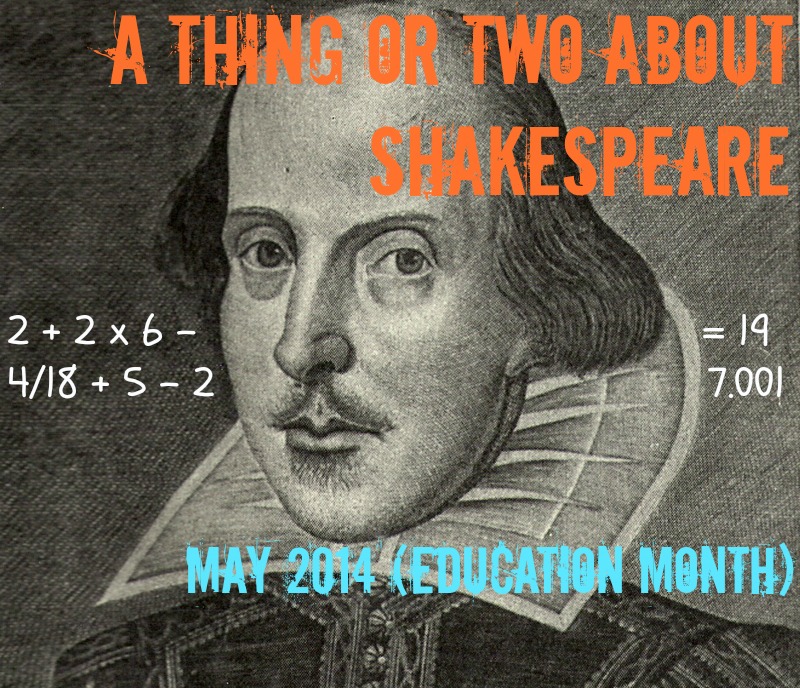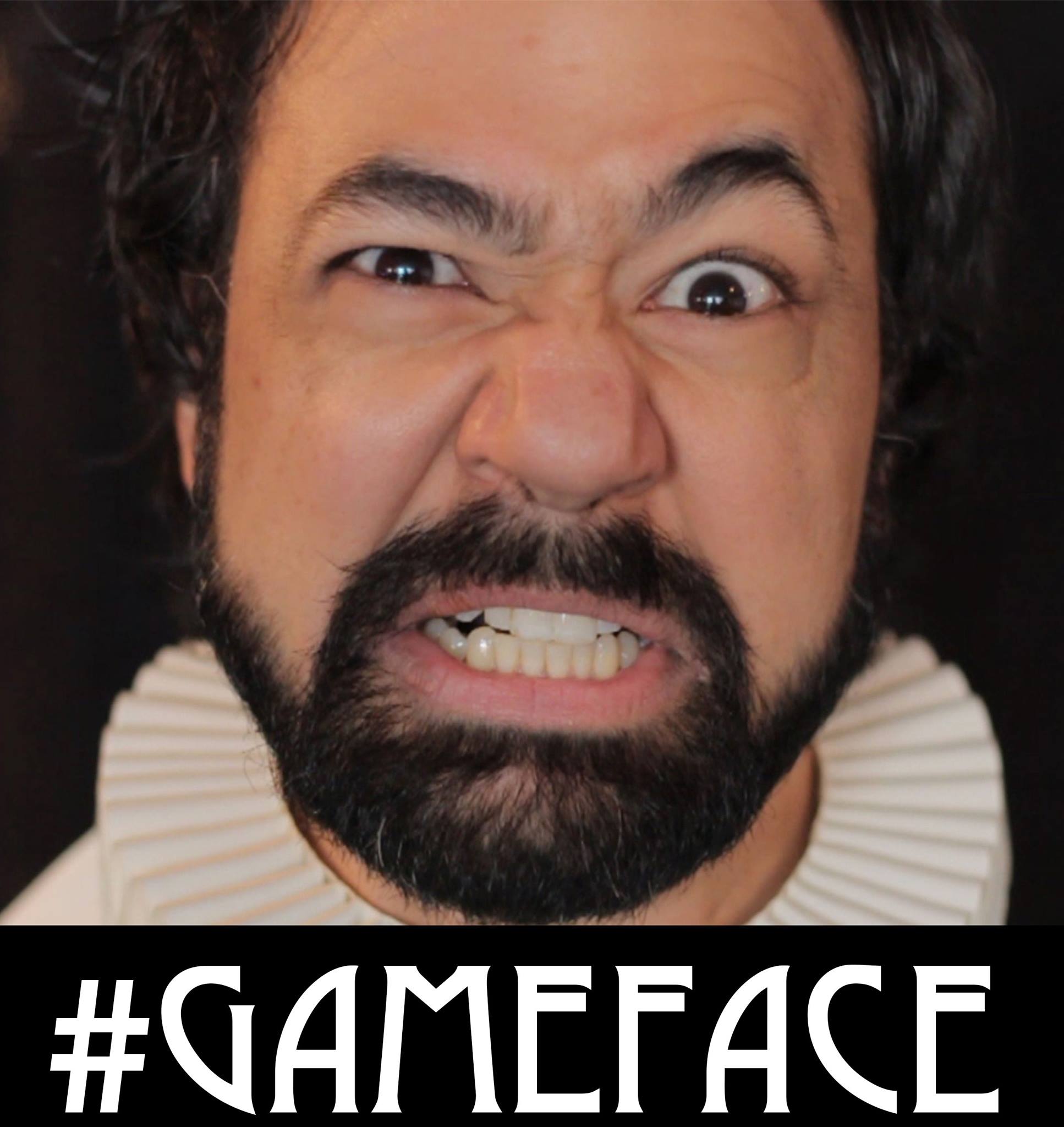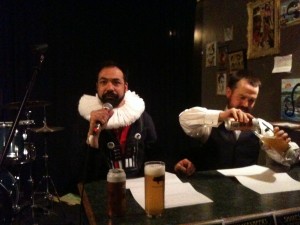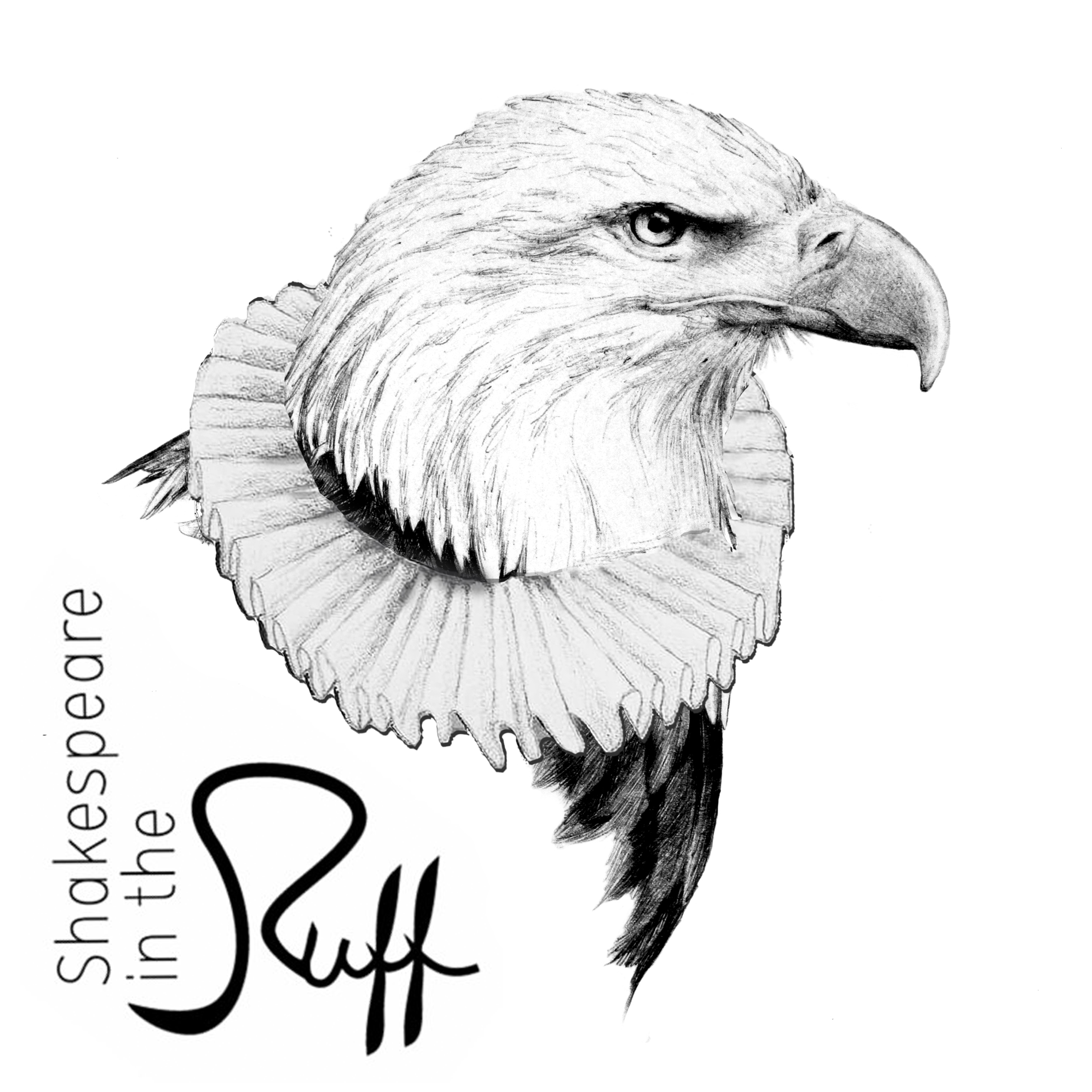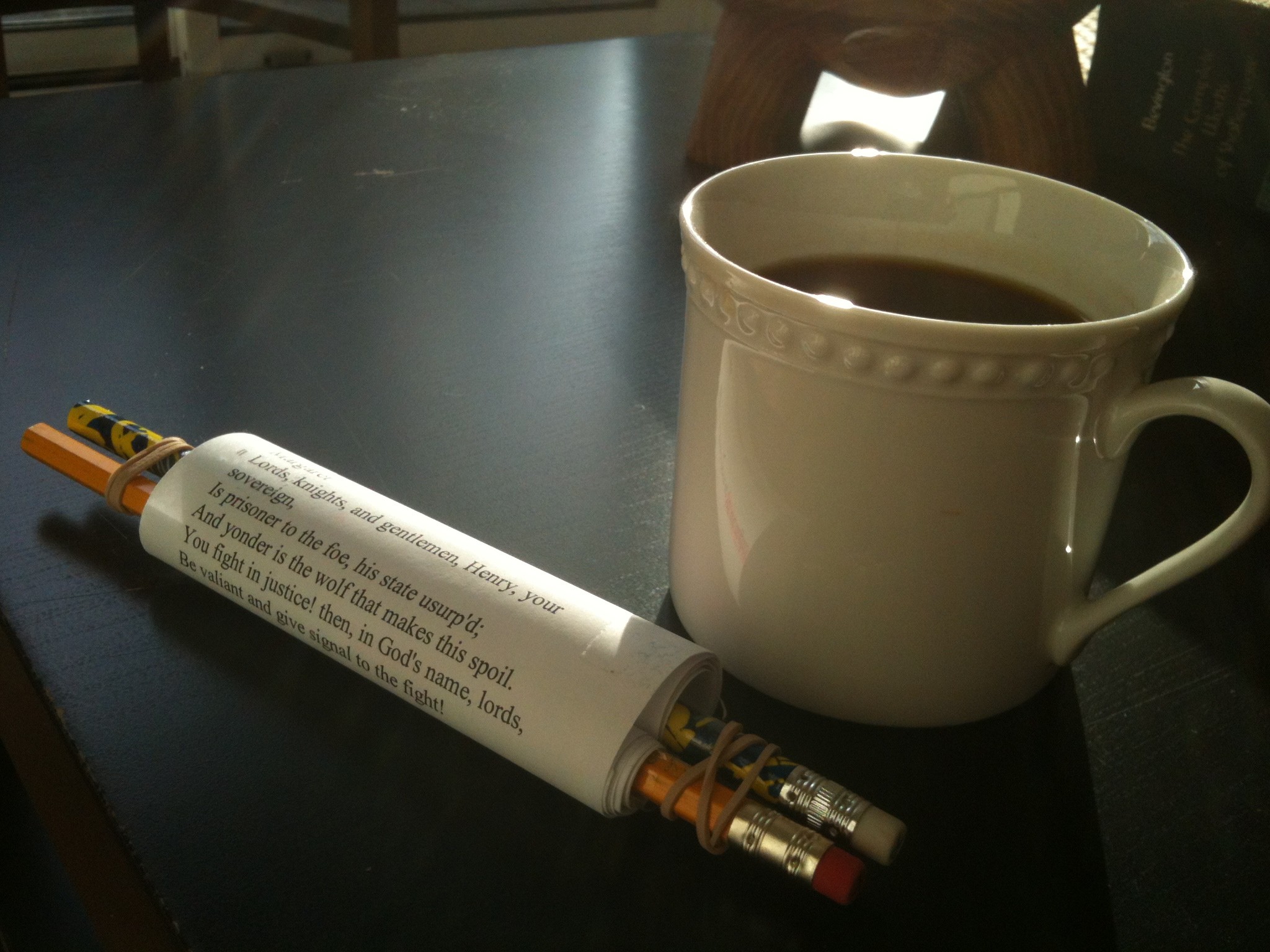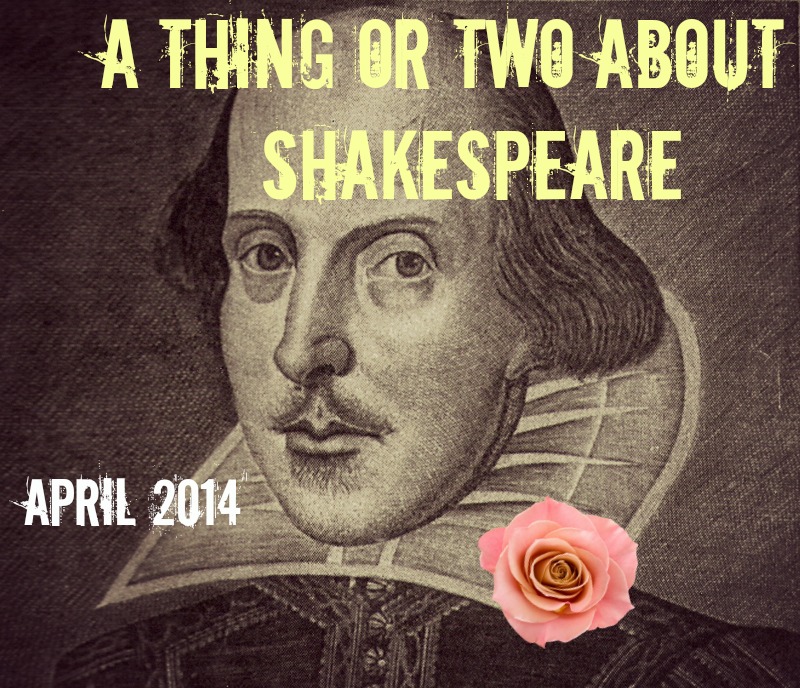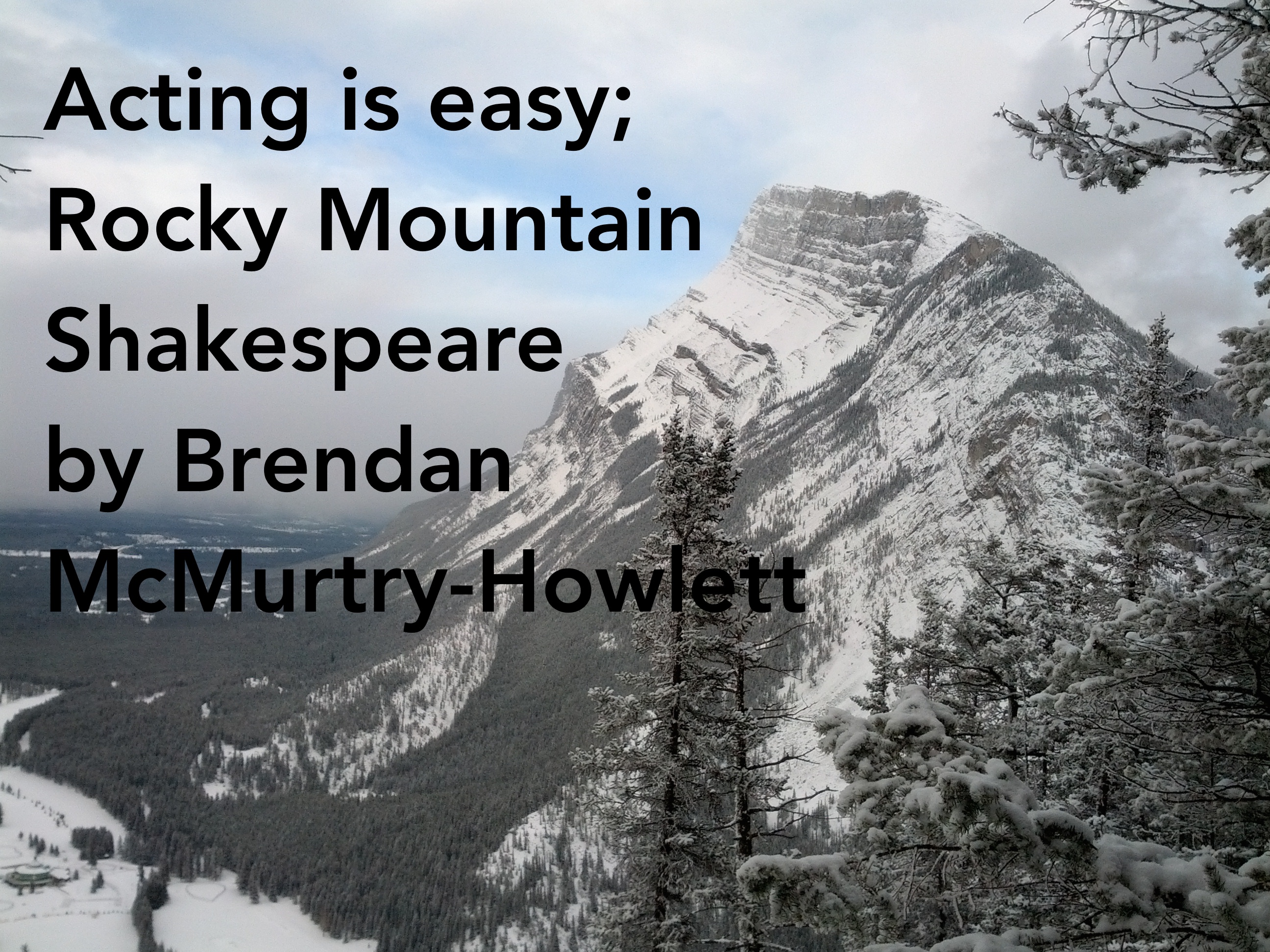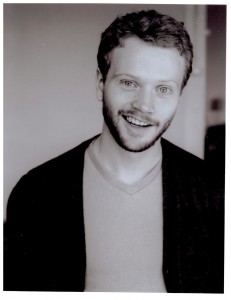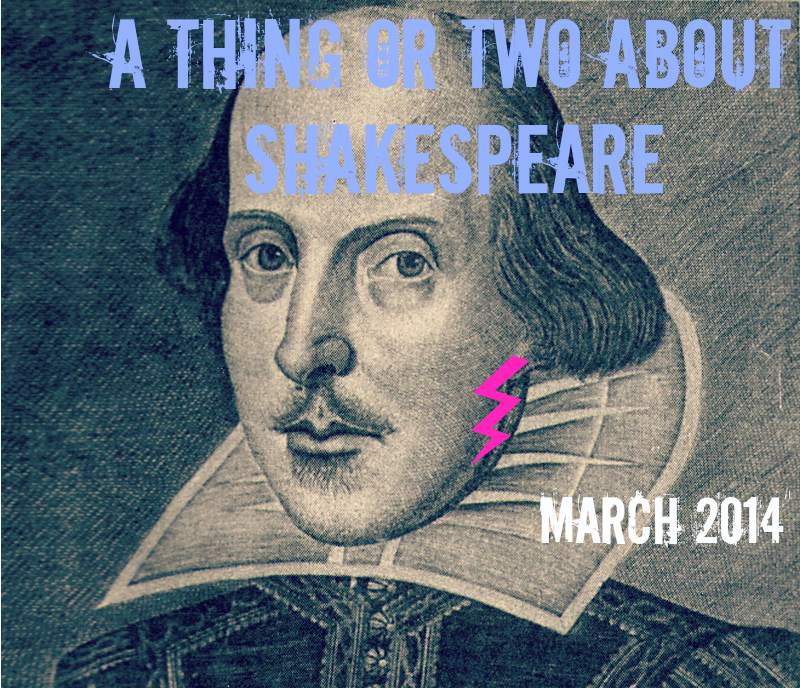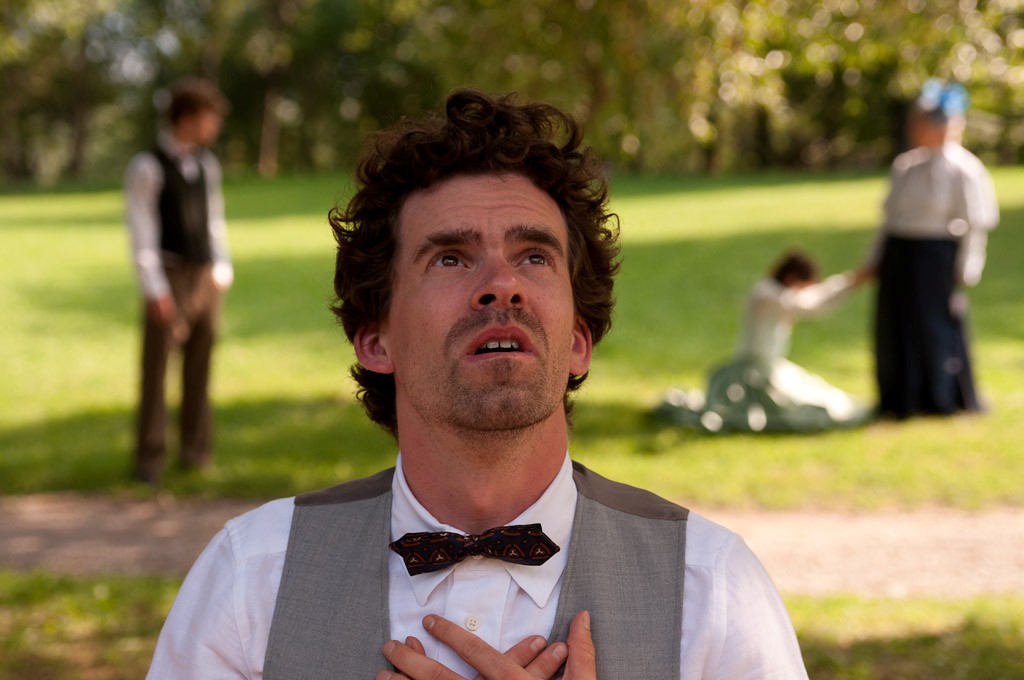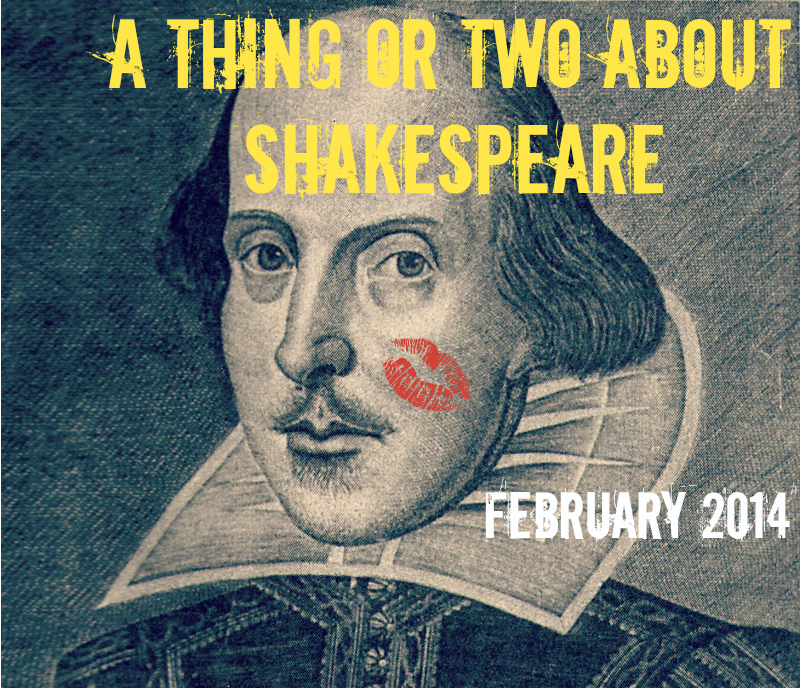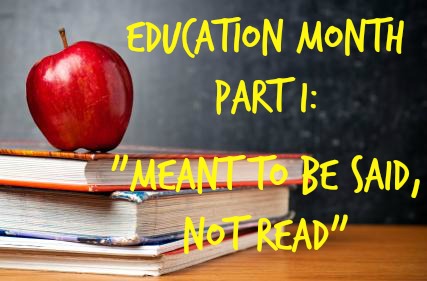
Shawn Rocheleau is a remarkable teacher who teachers high school Drama in the Toronto region. We were fortunate enough to meet Shawn a couple of years ago and our paths have continued to cross. We hope you’ll learn as much from Shawn as we have as you explore his philosophy of teaching Shakespeare and sample lesson plan, a beautiful way to introduce students to the rhythm, shape and movement of Shakespeare’s text.
I fell in love with Shakespeare early. I can remember reading (although not understanding) The Taming of the Shrew in late elementary school, and even though most of it flew right over my head, I loved the language. Even my monotonous Grade 9 and 10 English teacher’s readings of Romeo and Juliet and The Merchant of Venice couldn’t kill my love of the Bard. I played a dubious Claudius in Grade 11. After the privilege of participating in a student weekend at the Stratford Festival in Grade 13, and the disaster that was Introduction to Shakespeare, I managed to get myself through Teacher’s College and into my own English and Drama classrooms.
My love of Shakespeare became somewhat of a crusade when I realised that my fundamental premise behind teaching Shakespeare - it’s meant to be said, not read - was not a universal truth. While lip service was paid to “performing” Shakespearean plays, most of the lessons I was handed involved a lot of textual analysis and literary inquiry; very little of it was on-your-feet exploration. I was even told by a vice principal that I was “using too much Drama in my Shakespeare unit.”
The best way to get students - any student, of any level - to “get” Shakespeare is to get them on their feet. Get them moving. Give them the tools that Shakespeare himself built into the text and take the fear out of the words. Because it is those words that make Shakespeare so special and alive to audiences.
The first thing I do, to dispel the fear of the story, is to tell it. Not read it. Not show it to them in a video. Tell it. I use some snippets of text here and there, where I remember it, and I tell it from beginning to end. I leave some things out, and I try not to editorialise or assign value, I just tell them what they are going to see, hear, and eventually, be.
Then I give them the tools of the trade. We talk about the rhythm, the meter, the rhyme schemes, the words - all of the structural pieces that Shakespeare used to, well, to tell the story. We play with passages from the script we’re working on, move around the room and see what story the punctuation tells.
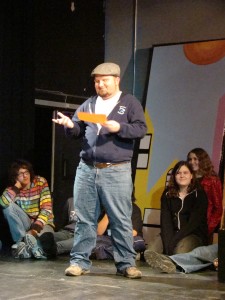 By the time we’re done, students have been playing with the text and have enough familiarity with it, so we can get down to the reading. I never send students home to read the text. We do it in class, on our feet, with the desks cleared away, as if we were on a stage. If we can get a stage, or if this is a Drama course, all the better. I treat it like a performance text (which of course, it is) and I talk to them like they are actors. What did you just say? Who did you say it to? Why did you say it? What does it mean? Just lots of questions, and everyone can answer.
By the time we’re done, students have been playing with the text and have enough familiarity with it, so we can get down to the reading. I never send students home to read the text. We do it in class, on our feet, with the desks cleared away, as if we were on a stage. If we can get a stage, or if this is a Drama course, all the better. I treat it like a performance text (which of course, it is) and I talk to them like they are actors. What did you just say? Who did you say it to? Why did you say it? What does it mean? Just lots of questions, and everyone can answer.
Then it’s their turn. They get to play with the text on their own, explore the meanings and the words, and eventually create their own interpretation of Shakespeare’s works. They must use the text, and they can’t alter the fundamental storyline, but otherwise, the world is their stage. They adapt, they create and eventually, they perform.
And then, if we can, we’ll go see a play, be it the one we have studied or another. Watching students react to something they have worked on and performed is more magical than watching the play - I always make sure I sit behind them so I can watch their reactions. My favourite moments are when they come to a new realisation or understanding of the text - the eureka moment where you know that their understanding of the world just got a little bit broader.
There are a ton of activities and exercises we can use to get students to understand and appreciate Shakespeare. The Stratford Festival, Royal Shakespeare Company, Shakespeare’s Globe, the Folger Library - all of these places have fantastic resources for educators who want to do more than just have students read silently and answer questions. In my opinion - and in my practice - anything that gets them off their seats, on their feet, with a script in their hand and an idea in their head is golden.
Shawn’s lesson plan: The Shape of Shakespeare can downloaded here. Some fabulous ideas, thank for sharing Shawn.

